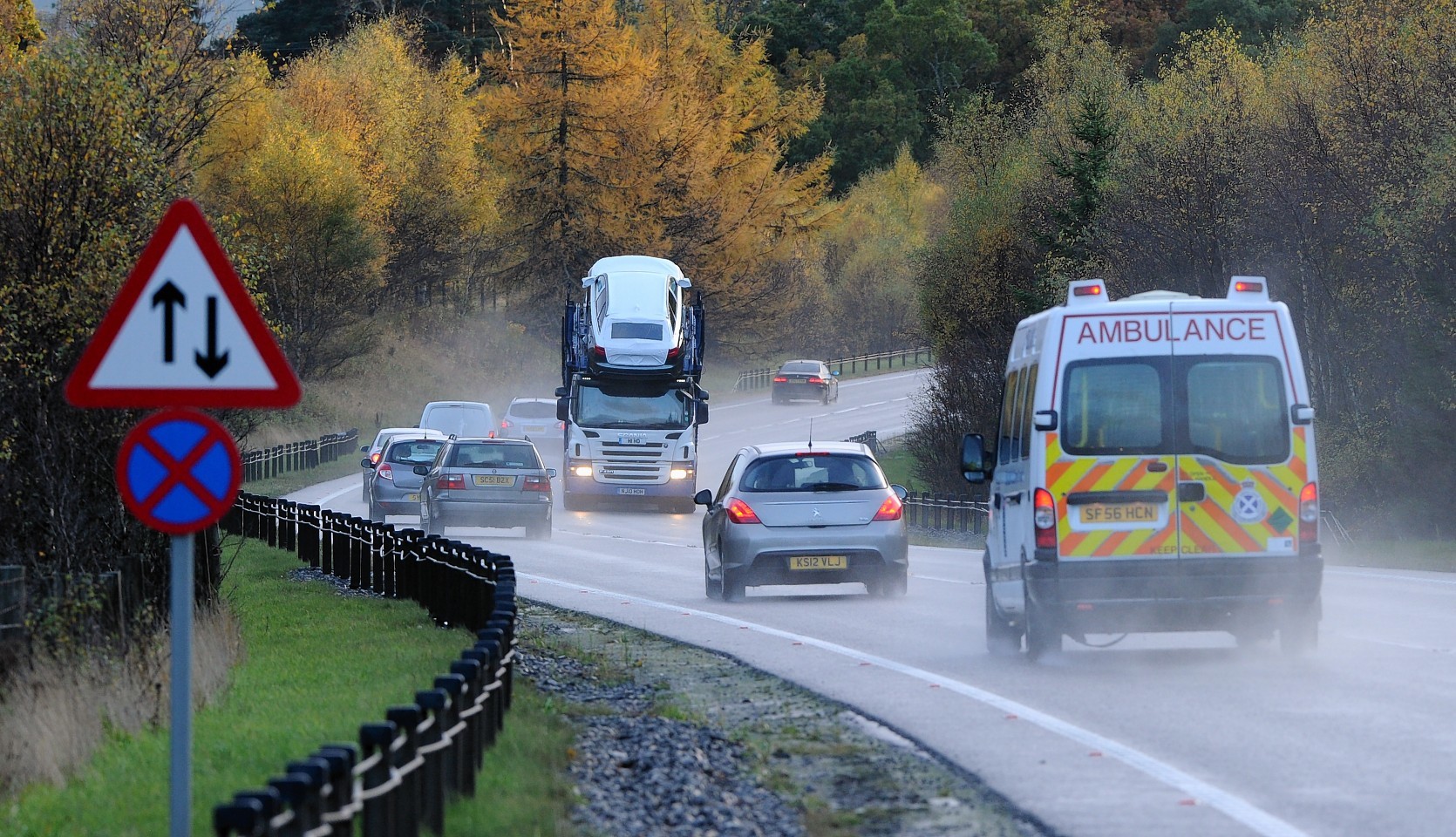The A9 could become an information superhighway under new plans to upgrade digital connections and facilities for visitors.
Motorists could soon benefit from high-speed mobile signals and new technology aimed at promoting the tourism sector between Inverness and Perth.
The upgrades would be delivered by the Scottish Government-backed CivTech Challenge alongside the ongoing £3billion dualling scheme on the north’s busiest road.
The CivTech project has set six challenges, two of which are based around upgrading technology on the A9.
The tourism element aims make use of technology for marketing and interpretation of services and the landscape the trunk road passes through.
The government believes that the dualling scheme creates a “potential catalyst for tourism growth” along the A9 corridor.
A contract has been offered for both this and the connectivity project, which involves ensuring a 3G signal the length of the road between Inverness and Perth.
By the time the dualling project is complete in 2025, the coverage would be fully upgraded to 4G.
The primary aim of the scheme is to allow drivers and their passengers access to traffic information during bad weather or after an access, and also to enable them to make calls if they are stuck on the A9.
Transport Scotland is interested in the scheme as a means of gathering data from cameras and monitoring the condition of the road.
A Scottish Government spokeswoman said: “The dualling of the A9 provides many economic opportunities for the communities along the route and further afield, including the tourist sector.
“Through the A9 tourism interface we are looking for ideas of how digital technology can be used to promote tourism destinations to drivers and their passengers.
“The smart corridor initiative is about making sure there is sufficient communications coverage along the route so that motorists can safely access traffic information during incidents and bad weather, and make phone calls if necessary.
“We look forward to receiving applications and successful parties will be notified in due course.”
The CivTech programme is backed by the government and involves challenges identified by the public sector and then put out to the private sector and public organisations to form solutions.
The projects have purposely been advertised with limited detail as to how they can be delivered as way of generating ideas from interested parties.
The Scottish Government yesterday advertised contracts worth £100,000 for each of the two A9 projects.
